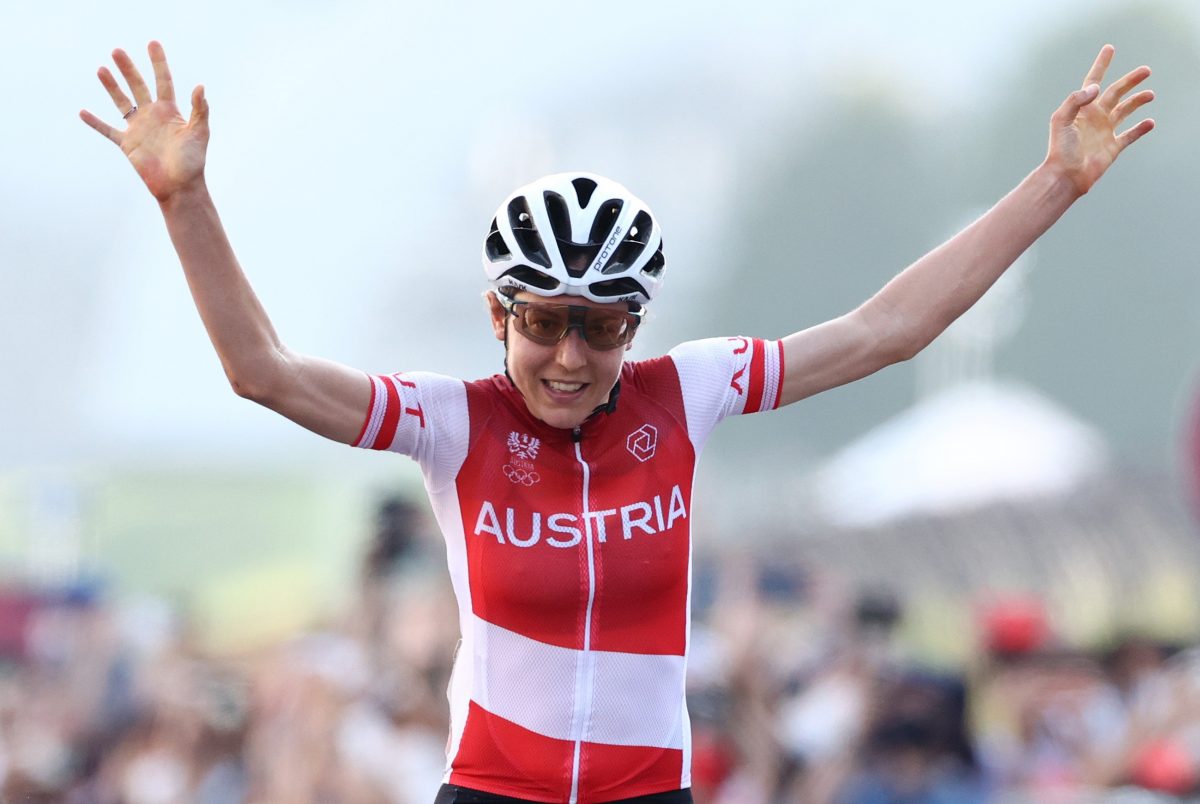TOKYO, (Reuters) – Austrian Anna Kiesenhofer caused one of the biggest shocks in Olympic road racing history with an audacious solo victory in the women’s race as a quartet of Dutch champions paid for an apparent communications meltdown on Sunday.
The 30-year-old Kiesenhofer was allowed to build up a lead of around 10 minutes in a five-rider group that escaped right at the start of the 137km route into the hills west of Tokyo.
She then went solo on the approaches to the Fuji International Speedway circuit with around 40km remaining as the favourites, including reigning world and Olympic champion Anna Van der Breggen, failed to organise a proper chase, seemingly unaware of exactly what was happening ahead.
In searing heat, Austrian time trial champion Kiesenhofer, an Olympic debutant who does not even ride for a pro team, kept her head down and her legs spinning as she powered around the undulating track to protect her advantage in tenacious fashion.
As she ground out the final agonising kilometres, Kiesenhofer was clearly suffering and the only fear was that she might cramp up after such a monumental effort.
Her earlier escape partners Anna Plitcha of Poland and Israel’s Omer Shapira were caught in the final five kilometres by the chasing pack who belatedly put the hammer down.
Kiesenhofer was straining every sinew and often glancing over her shoulder, no doubt expecting to see an orange armada closing in.
She held firm to claim a completely unexpected gold medal in three hours 52 minutes, one minute and 15 seconds, clear of Dutch rider Annemiek Van Vleuten who was celebrating like she had won the race as she crossed the line with arms held aloft.
“I thought I was one,” Van Vleuten was heard saying to her team masseur Ruud Ziljmans on Dutch TV. “Ruud have I got that wrong?”
DARING BREAKAWAY
Italian Elisa Longho Borghini was third for the second successive Olympics, but the story was one of a daring breakaway coming up trumps — almost unheard of in cycling.
“That’s usually a 1,000-1 shot,” said Britain’s former Olympic track champion Chris Boardman on the BBC.
After crossing the line the exertions of a day riding out front in temperatures in the mid-30s showed as an emotional Kiesenhofer collapsed to the ground, almost hyper-ventilating.
“I was just trying to get to the line. My legs were completely empty,” she said. “I have never emptied myself so much in my whole life.”
Asked if the favourites had under-estimated her, she added: “Yeah, definitely. That was my big advantage. I was definitely not one of the favourites. I mean I’m completely unknown.”
Not any more though, after she became the first Austrian cyclist to claim Olympic gold since Adolf Schmal won the 12-hour track race at the 1896 Athens Games.
For the Dutch, bidding to win the women’s gold for the third successive Olympics after Marianne Vos in 2012 and Anna Van der Breggen in 2016, it was a day to forget as they got their wires crossed in unbelievable fashion.
Silver was some consolation for the 38-year-old former world champion Van Vleuten, who crashed spectacularly in Rio five years ago with a gold medal in sight. But she thought she had more.
“I don’t think anyone wrote her down. I don’t know her. How much can you do wrong, if you don’t know someone?,” she said of the Austrian’s surprise victory.
“We thought we were doing it right, we took the Polish and the Israeli back and we thought we were driving for the gold.”
Vos said sometimes things just go wrong, especially without the aid of team radios, which are not allowed in the Olympics.
“You have to make split decisions: Sometimes you try and wait, sometimes you try and open up,” she said.
“We tried to find out who was still in the break, we knew there were three and we got two of them.”










